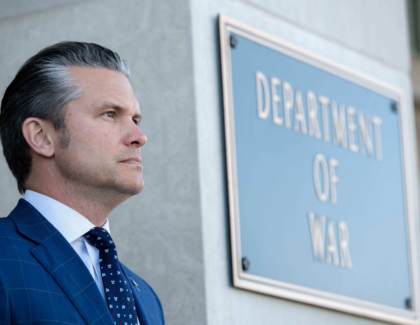Sign up for the daily CJR newsletter.
Earlier this month, a Brazilian judge stopped the prosecution of Glenn Greenwald under Brazil’s hacking laws. The case against Greenwald, a journalist for The Intercept, was apparently modeled on the indictment of Julian Assange, the founder of WikiLeaks, under United States hacking laws. Both cases are examples of governments using hacking laws to stifle political speech—and we should expect more of the same.
The public tends to think of Assange’s case as a massive First Amendment attack under the Espionage Act, for passing on leaks from a whistleblower and former Army intelligence analyst named Chelsea Manning. Assange, however, was also charged with breaking US hacking laws for allegedly agreeing with Manning to crack a password to a government computer network. The case against Assange is flimsy—as is the one against Greenwald. Both cases are based on the same theory, first advanced by Mike Pompeo and the Justice Department, and rooted in a case known as Bartnicki.
ICYMI: Governments of the world just ramped up spying on reporters
Bartnicki v. Vopper, decided by the Supreme Court in 2001, ruled that if stolen documents are delivered to journalists—in the Bartnicki case, to a radio station—they can be published (or broadcast), as long as the journalists received them passively and did not participate in their theft. The case did not attempt to answer what happens if journalists actively pursue sources for leaks.
Recently, the Justice Department has moved to fill the hole left open by Bartnicki—that is, how much journalists can do to pursue a leak. The assertion is essentially that a journalist can never actively seek the release of classified documents. This is what the Assange and Greenwald cases are really about.
In Greenwald’s case, a hacker delivered him unsolicited information, which revealed that a Brazilian judge was in cahoots with the incumbent government to imprison Luiz Inácio Lula da Silva, a former Brazilian president, to stop him from running again. Greenwald published the information and was later indicted for participating in the hack. Greenwald had moved from being a passive receiver of information to being slightly more active, as its distributor. He moved from being a dumbwaiter who doesn’t talk to sources to a journalist who does.
Assange had many more conversations with Manning than Greenwald had with his source. After Manning dumped her leaks—classified information on US actions in Iraq and Afghanistan, mostly—on Wikileaks, Assange encouraged Manning to obtain more information because, he said, “curious eyes never run dry in my experience.” That is standard journalistic behavior, as reporters encourage their sources to provide them more information on a daily basis. Surely, such encouragement is protected by the First Amendment. If Neil Sheehan, a reporter for the New York Times, had not persistently encouraged Daniel Ellsberg, a military analyst, to leak the Pentagon Papers, they would likely have never seen the light of day. (I led the Times lawyers in that case.)
The US government also alleges that Assange had a conversation with Manning about cracking a password to conceal Manning’s identity while he obtained classified military documents. As described in Assange’s indictment, however, the conversation was incomplete, and it will be surprising if the government manages to prove that Assange directly and materially assisted Manning in cracking the password. Because of the acute First Amendment implications of the case, Assange’s direct and material assistance should be required before stripping away First Amendment protection for Assange’s news gathering activities.
The US government has, for all practical purposes, admitted that it has a weak case against Assange for hacking. In May 2019, a grand jury in Virginia indicted Assange under the Espionage Act, and federal prosecutors subpoenaed Manning, ostensibly, to fill in the blanks of the alleged password cracking conspiracy. Manning has now been in jail for most of the past eleven months for refusing to testify. She says she never will. Meanwhile, Assange is imprisoned in the United Kingdom with an extradition hearing scheduled for the end of this month. The hacking charge, it seems, was trumped up against him in order to prompt his extradition.
The hacking charge against Assange also provides the US government with a PR line that makes Assange sound like just another hacker rather than a champion of free speech. The Justice Department, you may recall, first unsealed its indictment of Assange for hacking and only later did it amend the indictment to include charges under the Espionage Act. It is not untoward to suggest that the order of the release of these indictments was part of a PR strategy to get the public on the government’s side before getting to the Espionage Act’s more controversial charges.
In any event, we can expect that governments worldwide will attempt to follow the example of the US and Brazil. Conversations between sources and reporters will be scrutinized to determine whether reporters crossed some imaginary line between passive receipt of information and active pursuit of it. Further, governments may use anti-hacking statutes to cover their tracks, allowing them to easily confuse the public and courts with laws that are vague and full of technical gibberish.
The end game will be for governments, particularly authoritarian ones, to control the flow of information. In 2017, the US government classified 49 million documents. Governments cannot plug leaks of documents at that magnitude—they can only put a finger in the dike. And they can scare the hell out of journalists.
THE MEDIA TODAY: A celebrity death and a political scandal spark debates about privacy
Has America ever needed a media defender more than now? Help us by joining CJR today.







